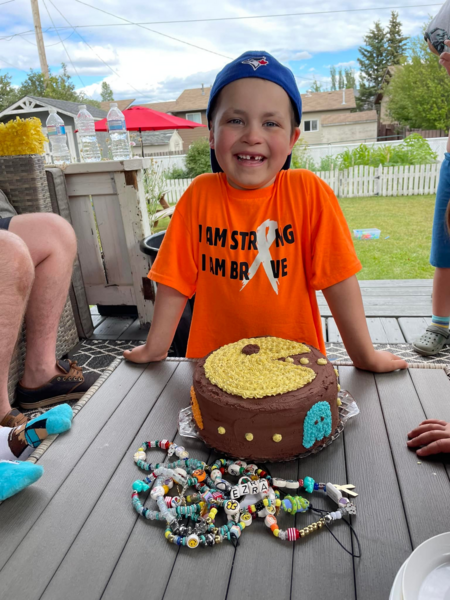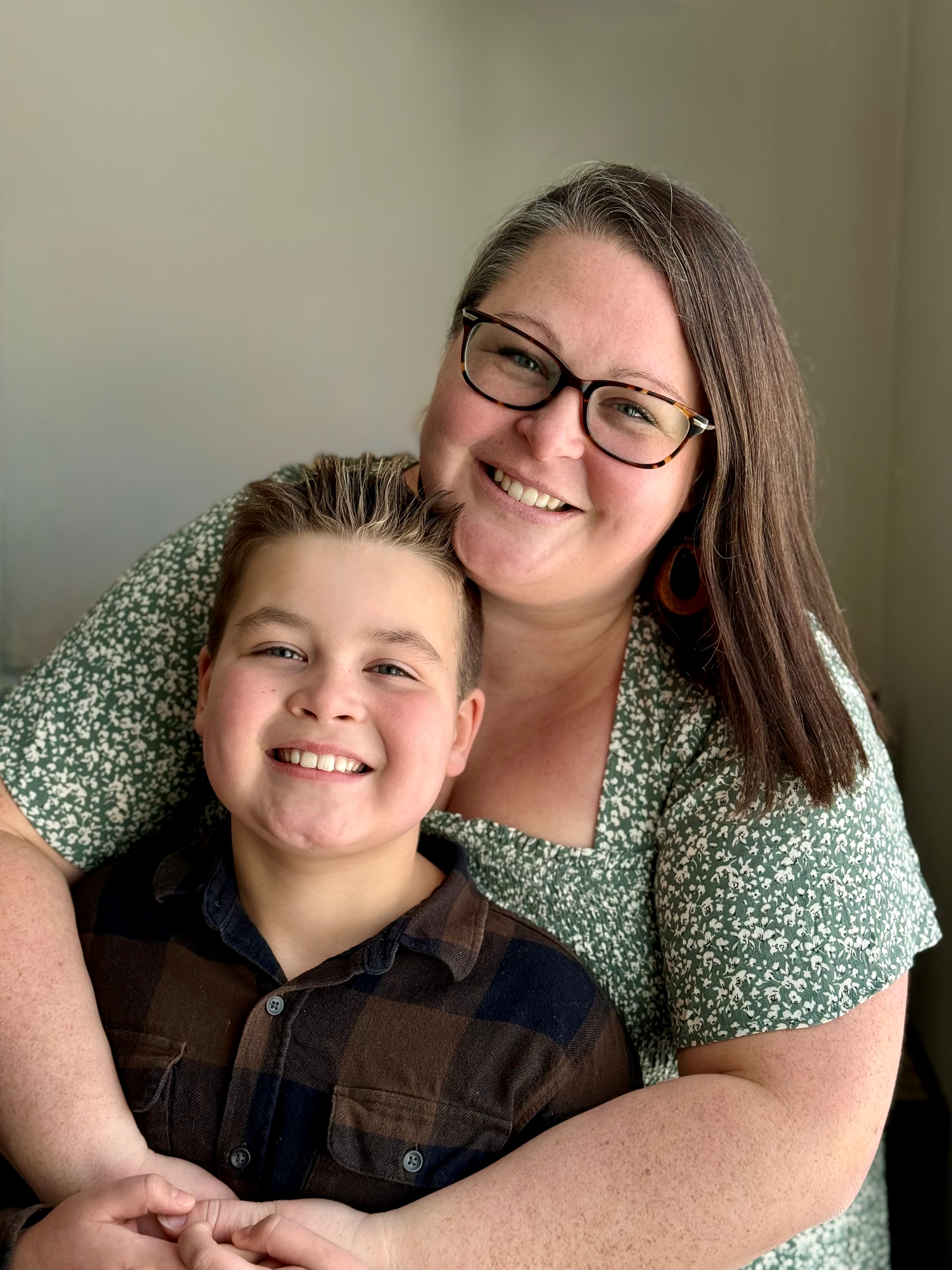
Ezra Dyck
Northern Alberta AB
Canada
Told by mom Kristin Dyck:
I can remember sitting in the Edmonton pediatric oncology ward the day after my son, Ezra, then 5, was diagnosed with T-cell Acute Lymphoblastic Leukemia (ALL). My husband and I had gone from preparing to embark on a family road trip from Alberta to Ontario to receiving the news that Ezra had cancer. I felt like I had lost all control of my life as I knew it and I was paralyzed by the possibilities that may or may not be my family’s future.
Ask for, and receive, help when you need it
The hospital connected me with another parent who had gone through a childhood cancer experience who was now volunteering in the position of peer support. She told me the greatest piece of advice she received was to get comfortable with being uncomfortable, and to tell people exactly what you need. She encouraged me to say yes to the offers of help, no matter how much admitting I needed help made my skin crawl. As it turned out, this advice was echoed by our son's oncologist.
I kept a blog during Ezra's cancer journey to update family and friends. My husband Cody and I live nearly six hours northwest of Edmonton, where the closest pediatric cancer clinic is, and together we have family and friends across both Alberta and Ontario. This meant being able to communicate quickly, to many people at once, was important. Within a few hours of writing out our two largest and most immediate needs - accommodation near the Edmonton hospital for Ezra and I, and childcare for our other children - we had spectacularly generous offers from people in our home community to cover both of those things.

Just like any other 8-year-old boy
In January, Ezra celebrated his first year off-treatment. In the last year we have celebrated all the ways life has returned to “normal” for us. We travel to Edmonton only a few times a year now, and Ezra is thriving at school, despite missing his entire Kindergarten year, and significant portions of Grade 1, while in treatment. He is back to keeping up with his brothers and he no longer requires special considerations to play sports or attend summer camp. Ezra is once again, just like any other 8-year-old boy, and for that we are forever grateful.
Navigating childhood cancer was unfathomably difficult, but if by sharing how my family endured that process I can help ease even one aspect of this life for another family, then I think that's a worthwhile pursuit. We are proof that there is life and celebration both after cancer and during cancer.
Been there, done that: Insider tips
- Find quiet moments to process it all. Those early hours and days after diagnosis are full of information that comes at you fast and furious and is often hard to process at the time. Find quiet moments, even if it’s 3 a.m. while you are laying on the parent bed in your child’s hospital room, to let yourself feel, understand, and process the new information.
- Mass-update people in your life. Consider keeping a blog, or Facebook page where you can update family and friends at once. Everyone will want to know what is going on, but there is no possible way you can individually update all the people in your life.
- Share the real and the raw: Write out your feelings, whether that’s a blog, Facebook page or a private journal – in a way that perhaps feels less vulnerable than talking to a room of people. By sharing the medical updates, along with the emotional updates, you are helping the people who love you better know how to support you.
- Get comfortable with being uncomfortable. So much about the journey of pediatric cancer treatment is unknown. Delays happen for any number of reasons; protocols sometimes change and making concrete plans more than a day or two in advance is often not practical.
- Live in just today. Looking ahead to what may or may not happen, or dwelling on life before cancer, is not helpful when it comes to caring for your child today.
- Have travel necessities readily at hand. Create a bin in your vehicle containing items such as a change of clothes for both you and your child, toilet paper, wipes, paper towels, hand sanitizer, and bottles of fresh water. Include multiple puke bags or buckets, also in your home, if your child is easily nauseated.
- Make friends with the other parents in the waiting room. These people understand better than most what you are feeling and there’s comfort in knowing someone else just gets it.
- Accept help when it is offered. While it may make your skin crawl to think of letting other people do your laundry, cook your family meals, or spend time with your children while you take a nap, or a shower, it’s important to accept that you can’t do it all. Protecting your own mental health and well-being is integral to your ability to help your child through their treatment.